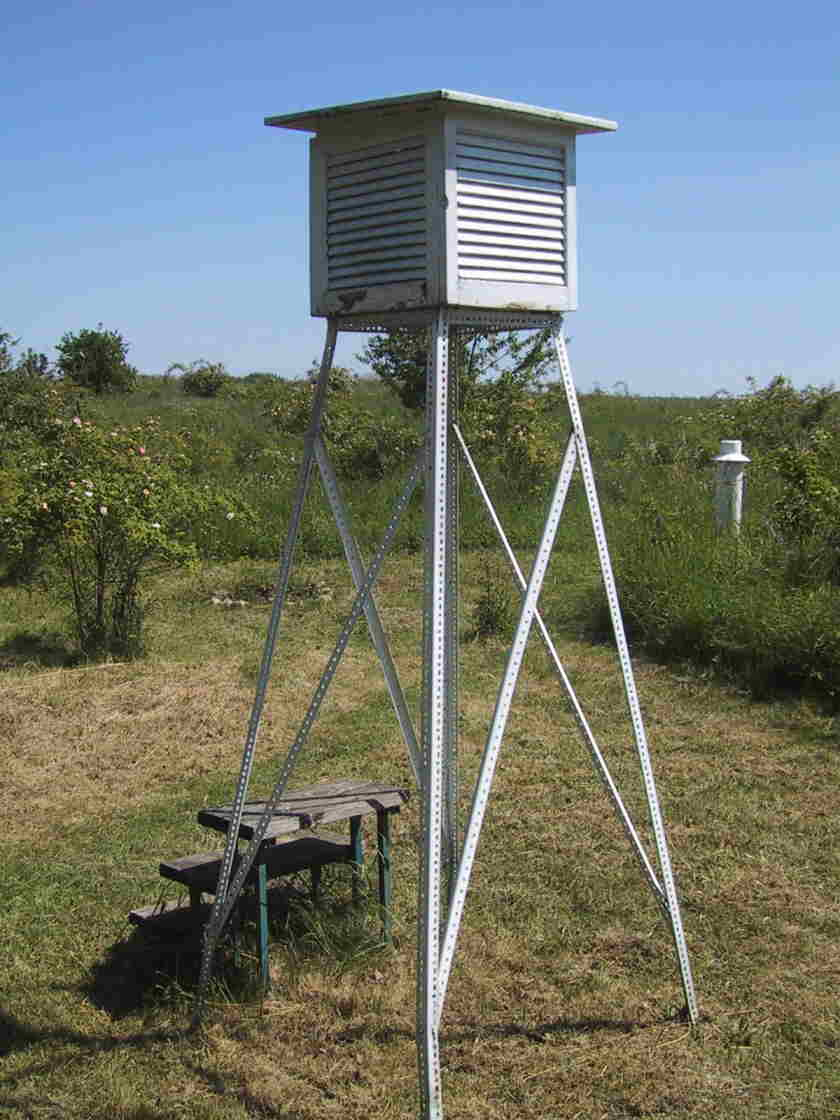
© Dipl.-Geogr. Martin Werner
Mean annual rainfall

top
Due to its position, Gundersheim is characterised by special climatic conditions.
These peculiarities result from its situation in the leeside to the dominating
westerly winds. Especially advective precipitation is being influenced by the
topography. This matter of fact applies to the whole region of Rheinhessen,
but is in the case of Gundersheim of fundamental more importance.
The secondary mountains in the west, namely the Ardennes, Eifel, Hunsruck,
mountainous region of Saar-Nahe and the northern part of the Pfalz provoke
a considerable reduction of rain falls.
The advective air masses loose humidity in the named subdued mountains (the
mean average annual precipitation lies between 800 and 1.000 mm).
The Donnersberg as the highest mountain
of the Pfalz (687 m a.s.l.) is the characteristic "cornerstone" of
Rheinhessen. He devides the air masses arriving from west, so that they flow
to north and south. As the result a funnel-shaped zone of reduced
precipitation is visible which opens to the east.
The mean annual sum of rainfall in Rheinhessen differs between 500 and 600 mm.
Rheinhessen is therefore considered to be one of the most dryest regions
of Germany. There are several precipitation stations of the
German Weather Office (DWD) in Rheinhessen. Mainz (585 mm), Worms (584 mm)
and Ober-Olm (561 mm) receive the most rainfall per year, whereas the stations
Alzey (523 mm), Hochborn (522 mm), Flonheim (519 mm) and Wollstein (519 mm)
receive remarkable less precipitation.
Considered on a larger scale
the peculiar feature of Gundersheim is its multi-leeside-effect due to the
plateau above the village and the opening of the valley
to the east.
It is supposed that this effect will cause a reduction to the mean annual sum of rainfall.
To proove this, a long term study is being established since 1992.